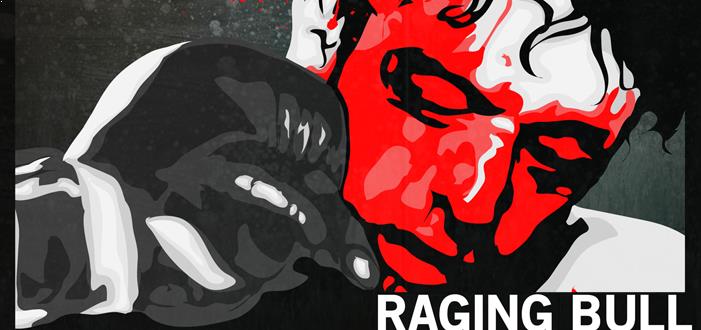
Raging Bull
Raging Bull is considered consistently one of the best films ever made, and it is very easy to see why. Mr. Scorsese flawlessly is able to capture the sea of emotions that arise through interpersonal conflict in a way which is simply stunning and uncanny. The most powerful points in the film are ironically at their most simplest, filmed on a small set that is supposed to pass as a mid-century Bronx apartment. In that quaint space, Scorsese is able to capture – really unearth – such raw human emotion that quite simply makes any aspirant filmmaker who wishes to realize the fullest depths of human emotions from their would-be characters a must-see from a master.
The narrative has a general melancholic flavor, due to the uncontrollability of the boxing protagonist La Matta [sic]. Despite being told repeatedly about “personal demons” in the synopsis, the audience never is privileged enough to understand the reason for La Matta’s self-destructiveness, his chaotic whirlwind which has him burn so many bridges he becomes an island. We can only speculate by saying the power he feels inside the ring as a boxer, gives him an inflated sense of power outside of it. He finds it convenient, in other words, to be a bull wherever he locates himself. But we have to ask why? Is this some sort of identity he has made for himself, which he is proud of? Is it an act which he cannot drop once he leaves the stage? Is his chauvinism a way to cope with the chaotic elements in his soul?
The answer is never given to us. As an alternative, we bear witness to the boxing champs demise and interpersonal disintegration with the closest lives around him. Is this then a cautionary tale? Are we supposed to be warned somehow not to turn our own lives into one reminiscent of a raging bull? The admonition is quite simple then. Peppered amongst the dialogue in the film by the collateral damage of the trampling is the genuine fact that La Matta never tried to take earnest advice. For his entire career and life extending beyond his retirement, he always thought he had the answer. This intersects quite elegantly with the suggestion that his boxing persona, and the confidence that is required to be exuded with such a vocation, was his only persona. Meaning, what made him a success in the ring is what led to his tumult outside of it. He forever was a double-edged blade, gashing both outward and inward. Any sort of wisdom imparted from someone else was simply a form of weakness in the mind of someone who thinks he has it all figured out.
Grade: A+

